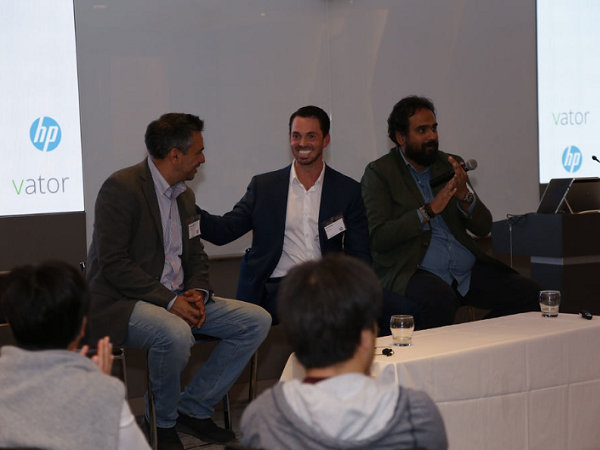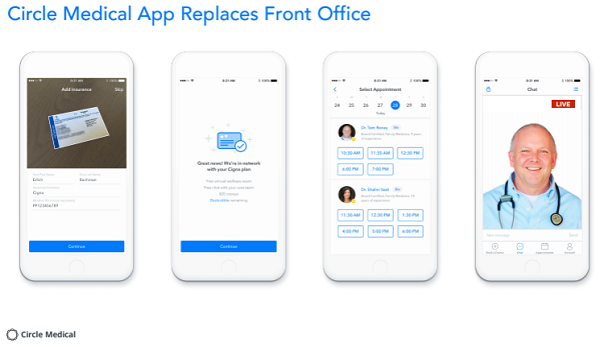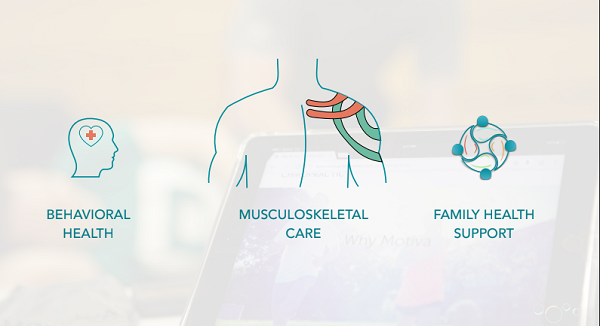
Vator has been holding its own events for seven years now, and a big part of our program has been to showcase promising young companies, allowing them to present to our audience of entrepreneurs and investors. We have had a number of companies pitch that have gone on to raise big funding rounds including Thumbtack, DogVacay, Pokitdok, Grovo, Udemy and Apartment List, to name a few.
Vator and HP recently held the latest salon, called The Future of Clinics, in which a group of entrepreneurs from startups such as Heal, Solv, Crossover Health and Heal got together to discuss the changing way that care is being delivered, and what that means for the future of the doctor’s office. And, as always, we carved out some time for a startup showcase, though these #InventHealth startup showcase segments aren’t pitch sessions.
Emceed by Hosain Rahman (CEO of Jawbone Health and Senior Advisor at UCSF Health Hub), it featured two companies, both of which are developing new and innovative solutions for how to help people get better care.
“We’re super fascinated by the future of clinics. We think that there’s an opportunity to take stuff that’s outside of the four walls and looking at people all the time, catching all that context and sharing that with the clinic experience as you’re going back and forth and providing a lot of context to the folks that need primary care,” said Rahman in his introduction.
The first to present was George Favvas, CEO & Co-founder of Circle Medical, a primary care practice in San Francisco that uses AI to automate both patient and provider-facing features.

Circle Medical is what Favvas calls a “full-stack primary care practice,” where all the technology is built in-house, including patient-facing tools to provider-facing tools. Despite initially only being a software company, he explained, Circle realized that building its own clinics would get it to market faster, so now the technology is run in the clinics that Circle operates.
“Our mission is to create the technology that enabled quality, delightful primary care for everyone on the planet. Traditionally, most people believe that there’s this iron triangle of healthcare where cost, quality and access compete with each other. Our belief is that technology can break us free of that,” said Favvas.
The company’s first clinic is in San Francisco, with eight full time providers who do primary care. Its platform includes an app that all patients are required to download, which then becomes their interface with the practice. The app automates on boarding, insurance validation, collecting medical records, and anything else patients don’t want to do when they see their doctor.
Patients can also use the app for video appointments, which currently accounts for between 12 and 15 percent of Circle’s volume, and that number is growing. The app also allows patients to text their doctor, and access medical records and labs.
“We’re interested in building on-going relationships with our patients and being that focal point and the on-ramp for the entirety of the healthcare experience,” said Favvas.
 Circle’s first clinic is currently profitable, generating 35 percent gross margins; it plans to have three clinics in the Bay Area by the end of the year, with the second one going live this month.
Circle’s first clinic is currently profitable, generating 35 percent gross margins; it plans to have three clinics in the Bay Area by the end of the year, with the second one going live this month.
“What’s happening under the hood is we’re collecting a lot of data; we have very, very deep AI experience in-house and we’re, bit by bit, automating different parts of the experience and we’re doing it in a way which is not obtrusive, and doesn’t get in the way of the patient and the doctor experience,” said Favvas.
The company has raised $12.5 million in venture funding from investors that include Y Combinator, A.Capital Ventures, Collaborative Fund, Real Ventures, Tencent, Ron Conway, Julia Hartz, Paul Bucheit and Joe Montana.
_________________________________________________________________________
The next to present, actually for the first time ever, was Kale Ptacek, Founder & CEO of Motiva Health, which addresses musculoskeletal disorders, which are the largest medical cost driver for employers.

Around 216 million days of work are lost due to healthcare conditions related to musculoskeletal care, Ptacek explained, with upwards of $847 billion being spent every year trying to find the direct and indirect costs of these conditions.
“Motiva Health began for one simple purpose, and that’s to change when people entered the healthcare system for musculoskeletal care. Today, in this crowd, one of two of you are sitting here having experienced low back or neck pain, and this is a problem across the nation,” he said.
“The current pathway for musculoskeletal treatment is ineffective; it’s only adding to the burden for the primary care physicians. Maybe they go to urgent care, maybe they go to their primary or internist, and maybe even the emergency room; this only further adds to their workload and increasing burnout rates that are now reaching 50 percent amongst physicians.”
Motiva’s solution can target some of the largest costs for employers brought on by musculoskeletal conditions thanks to “an easily implemented on-site strategy and hands-on therapeutic approach.” With its solution, the company has been able to decrease prescriptions, surgeries, injections and unnecessary procedures.
In addition, Motiva also targets the mental side of musculoskeletal care, along with family support.

“There’s a lot of opportunity in this area. Some of the largest companies utilize onsite healthcare via companies like Crossover and One Medical because they have the means and ability to do so, but what about everybody else? We target 250 to 1,500 sized companies; there’s thousands in the Bay Area alone and roughly half of these are self-insured,” said Ptacek.
One of Motiva’s most significant goals is to contribute in the fight against the opioid crisis currently hitting the U.S. By bringing alternative care to the forefront of musculoskeletal treatment we can minimize the reliance on opioids and other unnecessary pharmaceuticals.
“We’re a nation in the middle of an opioid crisis. We’re looking for change. 115 people die every day due to this epidemic. There are laws on the Senate floor, looking to be passed, as we speak to try to point consumers toward safer alternative options. It’s time for change.”
Thanks to HP, UCSF Health Hub, Avison-Young, Scrubbed, S

















